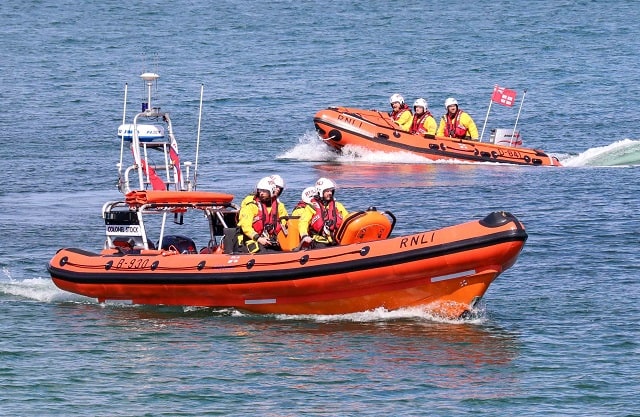
Margate’s two RNLI lifeboats have been involved in a search after coastguards received a distress alert from an Electronic Position Indicating Radio Beacon (EPIRB)
UK Coastguard received information of the distress alert around 10.15am today, (Wednesday 11 October) the position being in the Minnis Bay, Birchington area with a radius of accuracy of around four nautical miles.
Both Margate RNLI lifeboats were tasked to investigate, the larger B class lifeboat having direction finding (DF) equipment capable of ‘homing in’ on EPIRB signals. Margate Coastguard Rescue Team (CRT) also responded to observe and to make enquiries ashore gained by the details of the alert.
The lifeboats commenced a search centred on Minnis Bay, the smaller D class lifeboat carrying out an expanding square visual search while the B class lifeboat searched both visually and electronically using its DF equipment. A signal was detected in the Reculver Towers area where the search was concentrated.
Following enquiries ashore by Dover Coastguard and the CRT on scene it was established that the device was activated accidentally and a false alarm. The search units were released and returned to station.
Christian Wright, Deputy Launching Authority, Margate RNLI said: “EPIRBS can be activated automatically and may be the only distress alert that can be made before a vessel founders; it is important therefore that these alerts are treated for real. Most of the RNLI’s lifeboats have the ability to home in on these and similar beacons and we will always respond if requested.”
EPIRBs are a secondary means of distress alerting that can be activated manually or automatically via a hydrostatic release. When activated they transmit a signal including the vessel’s ID, position, nature of the event and contact details, all encrypted in digital code. The signal is picked up by satellite and relayed to the nearest MRCC (Mission Rescue Coordination Centre) who alert the rescue services.

